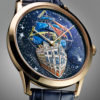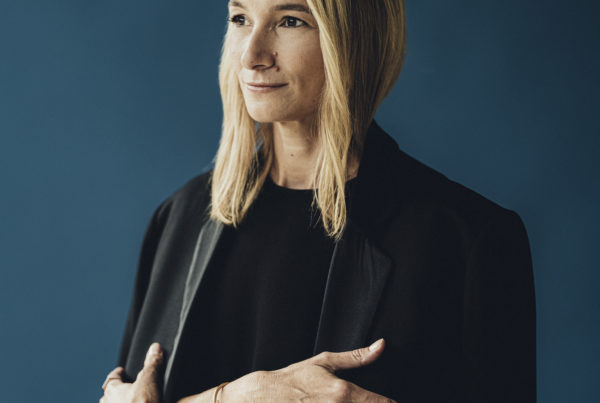Perfumes inspired by literature: volume 2
For this second episode on perfumes and literature, we interview Anaïs Biguine, the founder of the Jardins d’Ecrivains brand, which creates fragrances inspired by the world’s great authors. By Valérie Donchez
For this second épisode on perfumes and literature, Anaïs Biguine has settled comfortably into her memories, retracing, for ALL-I-C, the birth of her house, Jardins d’Ecrivains.
She used to say that perfumery notes had the power of words. For the past 15 years, she has been making a mockery of trends, creating fragrances inspired by the world’s great authors and the mythical places where they wrote, doubted and dreamed…
INTERVIEW
When you entered the perfume market, there was still no literary theme. Are you still passionate about the great authors?
Anaïs Biguine: When you approach literature, you also approach a very interesting timelessness. Literary subjects never go out of fashion. My idea in creating Jardins d’écrivains was to take on the full dimension of the responsibility of tackling literature. It’s such a noble subject that there’s no question of turning it into a cheap by-product and profiting from it.
Is it a responsibility for you to create fragrances inspired by writers?
Yes. You don’t want to vulgarise the subject at all. So I think it’s a big responsibility. And when I see certain brands using literary references to express what the fragrance is about, it sometimes seems to me to be more marketing than honesty.
How did Les Jardins d’écrivains come about?
I used to have an acting agency with 350 actors. I did photography. One day, I took my two daughters to visit Victor Hugo’s house in Guernsey. Hauteville House is a very special place! It doesn’t just tell the story of an era. It’s a work of art. When I was there, I was so taken with the place that I went back to my manor house in Normandy and said to myself, ‘I didn’t come here by chance. I hear something.’ I knew it was an artistic expression. In what form? I didn’t know yet. I called in a waxworker with the idea, at the time, of talking about places where people live. I wanted to talk about Karen Blixen and Stefan Zweig. And I started with candles. I spoke to a supplier, an old man who told me for hours about the process of creating a candle. I started working with a laboratory in Grasse. And I made my first candles.
I was delighted to get my hands dirty. Because I love gardening, I love cooking, I love materials and texture. My hands are always restless. That’s when I met David Frossard, who has been involved in the development of designer perfumery with brands such as BDK and Miller & Harris. David has a wonderful literary and, above all, philosophical sensibility. He became my agent and distributor. He was quick to say to me, ‘I think you’ve got what it takes to invent a perfume. You have to go for it. Come on, let’s go to Milan. You’ll smell everything. That seemed quite ambitious to me, but in Milan, in the midst of all the perfumes presented at Excense, I didn’t have to worry about it.
Did you have the luxury of creating your own perfumes?
Yes, I created George, my first fragrance, straight away. I feel that I’ve always studied George Sand. That I know Nohant like the back of my hand. That I can spend hours sitting next to her in her little cemetery. That I even know the parts of Nohant that can’t be visited. To create this perfume, I let myself go. I wasn’t at all interested in making a perfume that was in tune with the times, with the materials in vogue. I wanted to express its temperament. I went for a slightly nocturnal Nohant, not the good lady of Nohant, the one who entertains all day long, but the George Sand who smokes her little cigar, drinks her coffee, and lazes in her hammock hanging in that big room that used to be her grandmother’s bedroom, with a little secretary in an alcove. And she writes there. She writes in a very inspired way, wearing her beret. That’s the exoticism of George Sand. In the end, she brought a provincial way of life to Paris.
And it was with George that Jardins d’écrivains was born?
Yes, it went on sale at Jovoy-Castiglione, which had just opened its doors. The perfume critics at the time, Alexis Toublanc in particular, thought it was a cheeky fragrance. It was perfect timing, because that’s what it was all about. I was launched. I felt comfortable with what I was doing. I felt legitimate. Although I was self-taught, I felt that I could move forward with a team of chemists who would work on the balancing and completely accept the writing of my pyramids. Jardins d’écrivains was born.
Where does your inspiration come from?
I have several criteria for selecting the adaptations I tackle. Because literature is obviously a bottomless pit. Literature is my playground. I’ve taken a lot of side roads, like with Junky, Loy and Marlowe. With Marlowe, for example, inspired by Christopher Marlowe, we’re really in a time of discovery, with a side that’s more theatrical than literary. There’s the baroque side, the exuberance of this Elizabethan rogue. A homosexual spy who inspired me enormously.
I only go for subjects that I feel I can interpret with all my authenticity. Literature is not a free subject. You don’t think ‘Oh, there’s this fashionable material, vanilla is coming back. There’s a trend towards sugar, brioche, Proust! No, it doesn’t work like that. That would be a bit easy.
So it’s not that easy to interpret literature?
Before I created Jardins d’Ecrivains, I worked a lot with references because I was in the beauty and photography business. There’s a lot of deciphering and analysis of everything that’s trendy. My visit to Victor Hugo opened up a whole new world of possibilities. I was no longer wondering what people wanted to see, hear or feel. I was into ‘come on, we don’t care about the trend or the moment’. I gave myself this time slot. In fact, that’s all Jardins d’Ecrivains is about, moving around the time scale. I go from the ancient philosophical garden of Epicurus to the 19th century, to Dickens or Oscar Wilde. I’m very 19th century. It’s free. And I really like it.
Is this freedom perhaps part of the reason for the success of Jardins d’Ecrivains?
Perhaps it is. Maybe it makes things more timeless by not surfing on trends. I find that what’s fashionable, for me, is already out of fashion.
Can you tell us about the fragrance that William Morris recently inspired?
My penultimate fragrance? Yes… I went back to England in the Victorian era, which is an inexhaustible source of inspiration for me. And I worked on William Morris, who had the essential human qualities to make it a subject. He was ultra competent, a Swiss Army knife who knew how to do everything. It’s art in grace, of course. Tolkien said that William Morris was the absolute master of fantasy literature, and that’s what interests me about him. So I wanted to work with a different kind of freshness. Freshness is used a lot in Cologne, on splashes, on citrus materials. There’s a slightly dismissive attitude towards fresh materials, implying that they have no character. But that’s not true at all. And that’s why I wanted to create a breath of fresh air. In this fragrance, you feel like you’re in the back of Narnia’s wardrobe, and then you enter another world. Pure fantasy. It’s very powerful. I gave it a very juicy green pumpkin note. The wintergreen gives it an almost medicinal edge. This berry is used to make Tiger Balm. It’s a berry found in the Himalayas. It has a roaring freshness, slightly medicinal, singular and spicy. William Morris is social modernity. It’s about the equality of men and women. It’s respect for craftsmanship. It’s pre-Raphaelite art, since his wife, Jen, is the great muse of this pictorial movement. He’s a handsome man.
Would you like to tell us about a character from literature that you’ve loved to put in a bottle?
I’ve done a few. Take Wilde, for example. He’s a man of posture who would have us believe that his aphorisms reflect only the accuracy of his words, his precision, his snappy phrasing, his impertinence, his intelligence, but in reality, Wilde is an extremely complex character who has to navigate through Victorian rigidity. He obviously paid dearly for the liberties he was able to take. I’ve put his dandyism in a bottle, because he really is a dandy, all elegance, with a carnation that was the emblem of homosexuality at the time. There are grapes in Wilde, in reference to Salomé, which he wrote for Sarah Bernhardt, with its grapes and his taste for antiquity. I really enjoyed putting this man in a bottle. Because perfume is also a posture and his life was made up of many postures. I think he’s a man who, had he lived in the 20th or 21st century, would have been completely different.
Working with dandies suits you.
I like it, indeed. There are some famous ones, like Robert de Montesquiou. But the fashion for dandyism, which appeared about ten years ago, quickly bored me. As soon as words become a trend, stripped of their true meaning and used indiscriminately, they no longer interest me. Drawing inspiration from literature is often easy for some people. And that’s a shame, because the whole point of literature is to get lost, to discover. It’s about going towards something that isn’t necessarily known or recognised. Today, for example, Baudelaire is overused. It’s unfortunate to say that about an author with such a monumental body of work, but that’s the case. In reality, a book is very intimate. It’s about mirrors and echoes. Books provide all the solutions to the problems of our lives. Except that people don’t know how to read any more. People go to practitioners, to therapists. But literature brings us everything on a plate. We can read and re-read essential books every ten years of our lives. Each time, we read them differently. Can’t we say the same thing about perfume?




























